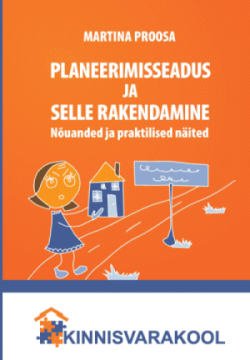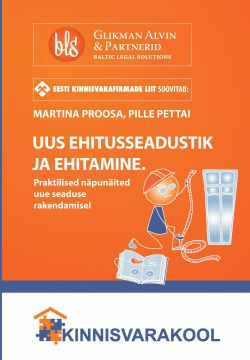 The die is cast – the next move is the EU’s
The die is cast – the next move is the EU’s- Limited effect of Brexit on the Baltic economies, so far
- Baltic interest – strong EU
Wheels are set in motion
On March 29, the UK gave formal notice of its intention to leave the EU, which means that the clock, set at two years, has begun to tick. The next move is the EU’s, and it is well-prepared. The president of the European Council, Donald Tusk,will soon present a Brexit draft to the remaining EU27.On April 5, a vote will be taken on a resolution describing the European Parliament’s negotiating priorities. Among other things, the EU’s chief negotiator, Michel Barnier, wants to make sure that the EU citizens who move to the UK in the next two years still have full rights . During this time,the UK will still be a full-fledged EU member. The formal process will now progress through three stages.
First, the EU’s heads of state and government (European Council) will convene on April 29 to adopt negotiating guidelines. After that, the European Commission will propose that negotiations begin. The third step is that the member states authorise the EU’s chief negotiator to formally begin the process. Negotiations between the EU’s Michel Barnier and the UK’s David Davis are expected to begin in mid-May, about the same time as the second round of the French election.
Decision-making authority within the EU
When it negotiates a divorce settlement, the EU will have to consider its future relationship with the UK (according to Article 50). Negotiations on this relationship, their outcome,and approval may involve the European Commission, the European council (EU27), the European Parliament,and the parliaments of the EU27 and the British Parliament.In some EU27 countries, such as Belgium, subnational authorities will also have a say. For example, a free trade agreement with the UK post-Brexit will require the unanimous support of the European Council. When it’s time to finalise the divorce, the EU will be represented by the European Council, where a qualified majority will be needed for approval, i.e., at least 72% of the countries, representing 65% of the population in the EU. Approval cannot be given until the European Parliament first gives its consent. In addition, the British Parliament will vote on the final deal and will give it either a thumbs up or down. “No deal is better than a bad deal,” Theresa May has said.
According to Article 50, the negotiations cannot go beyond two years unless the European Council and the UK both agree to an extension. This time limit is highly ambitious, and we can’t rule out that it will be extended. To gain the unanimous support of all the EU members may require concessions to holdouts in other areas that may not be directly related to the Brexit negotiations.
EU’s priorities
The EU will seek to ensure that EU citizens are not discriminated against and that they keep the same rights in the UK if they move there in the next two years . This will be of particular importance to the Baltic countries, as a large number of Baltic citizens are living in the UK. In addition,the EU’s negotiators have said they will prioritise the following:
- Ensuring that the UK’s financial liabilities, including those extending beyond 2019, are met. Even if the UK pays its Brexit bill, the remaining EU member states are likely to face a higher net contribution to the EU’s budget, since the UK is a significant net payer.
- Not signing anew trade agreement before Brexit is finalised.
- Creating as much clarity and certainty as possible for the citizens, companies, and member countries adversely affected by Brexit.
We expect the EU to present a united front in dealing with the UK and that all the members of the EU27 will stay on message. This has worked well so far.The EU’s detailed priorities will ultimately depend on the outcome of European elections this year, especially in France and Germany.
Limited economic impact for the Baltics so far
The impact of the Brexit vote on the Baltics has so far been limited. Last year, the value of exports of goods from Estonia and Lithuania to the UK declined by 12% and 6%, respectively. For Lithuania,the fall was driven by the decreasing value of exports of mineral products, and for Estonia by a fall in value of shale oil products and exports of mobile communication equipment. Without exports of mineral fuels, Lithuanian exports of goods to the UK expanded by 10%, although growth was slower than in previous years. Lithuanian exports of services to the UK were largely unaffected and continued growing by double digits. Latvia also managed to increase the value of goods exports to the UK last year. However, it has probablybeen hard for exporters to avoid the squeeze on profit margins caused by the depreciation of the pound sterling of more than 10% since the referendum. But the exporters were not the only ones affected by the depreciation of the pound. According to the Bank of Lithuania, after three years of growth the remittances by Lithuanian migrants from the UK to Lithuania declined by 20% last year. Total remittances to Lithuania are at around 3% of GDP and are an important source of income to some Lithuanian households. The decision in the Brexit referendum could have also contributed to the spike in migration from Lithuania to the UK. Migration from Lithuania to the UK increased by 22.5% in 2016, compared with the previous year. More than 23,000 more Lithuanians moved to the UK last year– the highest outflow of people in the last five years. Almost half of all the people who left Lithuania last year chose the UK as their destination. Migrants possibly rushed to secure their place in the UK before the borders closed.
Moving forward – plenty of risk, but there is also hope
The negative migration trends may continue during the Brexit negotiation period, which would put additional pressure on the labour market and population ageing in the Baltic countries. However, we expect that the effect of Brexit-related events on the Baltic economies over the next two years will be limited. After the divorce, much will depend on the details of any future trade agreement that the parties reach–and whether they even reach one.The UK has said so far that it will prioritize lower immigration at the expense of access to the internal market (a so-called “hard Brexit”). If free trade with the UK can no longer be ensured, this would adversely affect both exports and investment, but mostly via second-round effects. More important could be the effect of a reduced EU budget. If the other countries do not fill in the gap after Brexit, the Baltic countries could receive even less support from the EU’s budget in the form of structural funds after 2020. This would possiblyhave a negative effect on investment. Nevertheless, the biggest risk to the Baltic economies is related to the strength and longevity of the EU. The Baltics are small,open economies, which have benefitted greatly from the integration of the European markets and the introduction of the common currency. A further weakening of the EU would have negative consequences on all EU countries, not excluding the Baltics. However, the risk of the EU’s falling apart has receded for now, as the populists in France and Germany are less likely to win the important elections in Europe and the economic recovery in the EMU is finally gaining momentum. Still,a lot can happen:the negotiations will be long and messy, the populists in the EU may still succeed, and the structural problems are yet unresolved. But there is also a chance that the EU will emerge stronger after this. Long live the EU!














